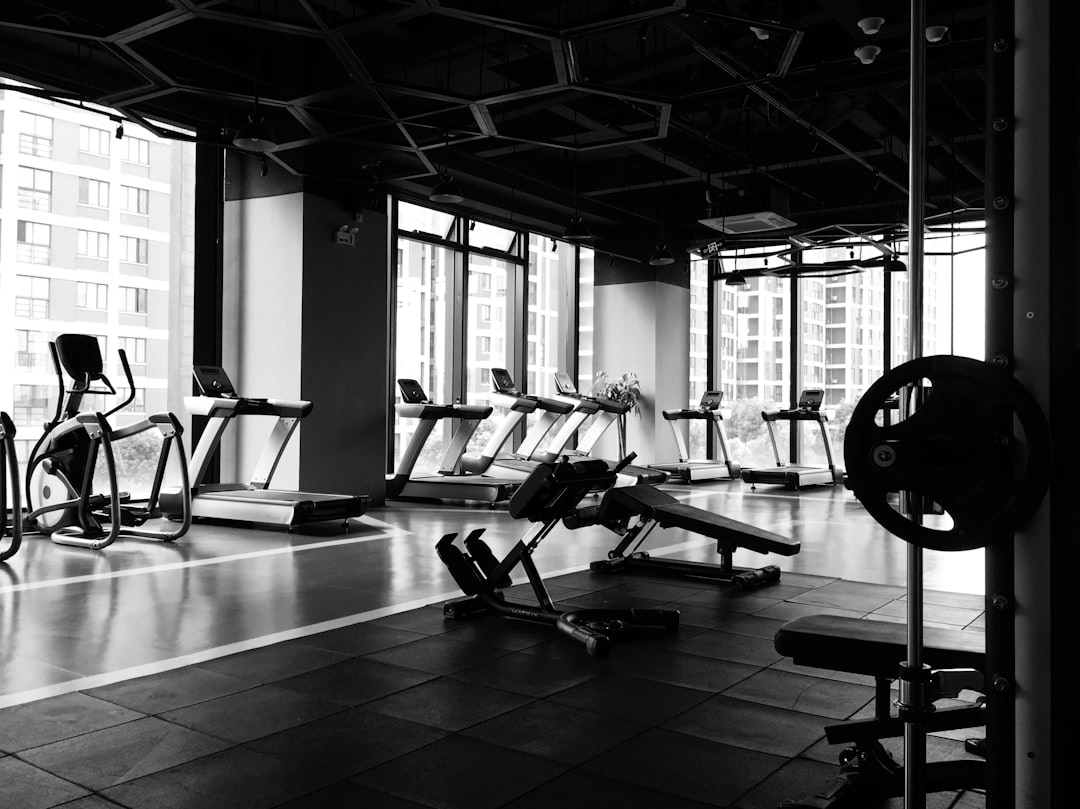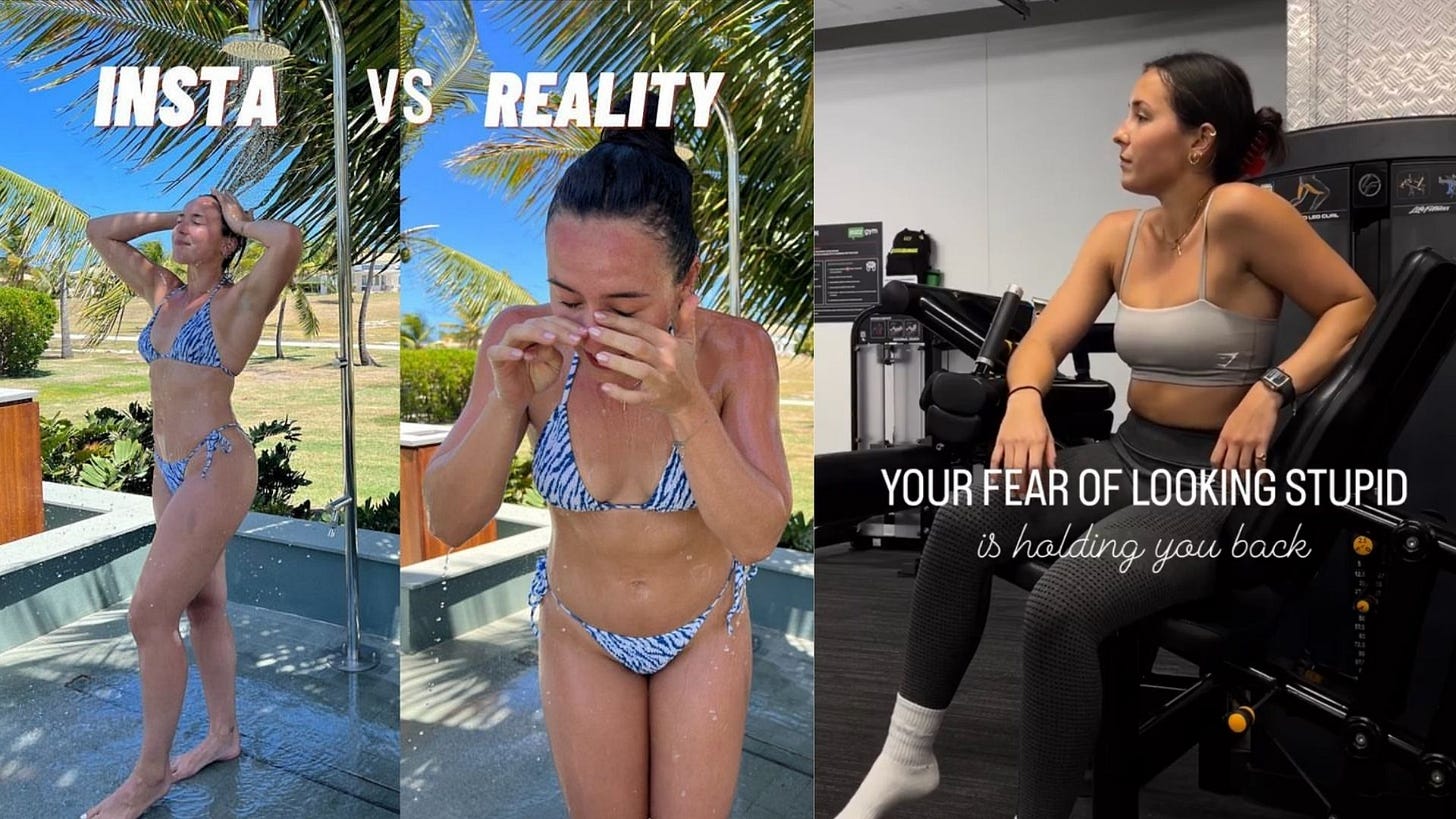Are we Ever Satisfied with Our Bodies?
Beyond Fitness: In a society obsessed with body image and social media, creates the negative stigma of gym culture and rising concerns of body dysmorphia.

All Guns Blazing
Often when people think about starting the gym it immediately sends them into panic mode.
For beginners with little to no experience, comes lack of knowledge. Where do they start? What exercises are effective? What is the correct form? How do I up my protein intake? What supplements help build muscle? How the hell do I make overnight oats? … Submerging yourself into gym culture can feel like a push straight into the deep end.
The start of one’s fitness journey may look a little like: food shop trips to Aldi searching for the infamous 20g protein chocolate pudding. Bulk buying white monster energy drinks and chicken breasts. Or purchasing any available Gym Shark set in stock. Only to find that a week later their gym fantasy was nothing more than a that, a distant, short-lived memory.
And instead of setting realistic, achievable goals, people usually find themselves scrolling through social media desperately searching for all the answers at once. Left feeling overwhelmed, and consumed by perfect, filtered, ‘gym goals’ bodies. Creating issues of body image, and raising concerns of body dysmorphia.
‘The New Normal’
Personal trainer, Louis Goodgame, based at Buzz Gym Oxford, believes issues of body image ‘is a societal thing, more than an issue with gym culture itself’. Goodgame, since recently taking a break off of social media noticed a change in the perception of his body since returning to manage his business profile @lg.coaching.
Goodgame states the break changed ‘the way I see myself, the way I want to push myself’. He points to social media for setting unrealistic, unattainable body standards, which create issues of body dysmorphia and ‘unhealthy eating habits’. Goodgame states ‘We are chasing a destination we can’t get to, and the most important thing is that you learn to enjoy the journey itself.’
In a society fuelled by ‘what I eat in a days’, half clothed images, and idealised content, ‘you are always looking at these fabricated images’. It is easy to spiral into a rabbit hole of social media.
Goodgame states that while he gets ‘inspiration off people I see on social media’, ‘at the same time, you also compare yourself’. He points that what we see on social media is ‘people pictured in great lighting, have a great pump, and you will look in the mirror and think “I don’t look like that”’.
‘so much goes into these photos, when you go into the gym people don’t look like the pictures posted on social media’. What we see on social media today we believe to be true, because ‘it has become the new normal, but it’s not what we see in reality’.
Distorted and Disheartened.
Being a regular gym goer can massively distort your perception of how you view your body. By chasing an end goal makes training difficult and frustrating, often you can be left dissatisfied with your progress. Through experience, Goodgame says ‘I’ve learnt to accept the fact I’m never going to be the biggest, I’m never going to be the most ripped, but at the same time I’m fairly happy with what I’ve achieved with my body’.
By being able to disassociate other people’s bodies from yours, and being able to fully accept yourself is extremely important. Goodgame states he has ‘different expectations for myself that I will not portray on other people’. We are constantly admiring other people and not giving ourselves the same praise.
Why are we so Afraid?
‘Everyone in the gym has just as much right to be there as one another’
‘You don’t need to look a certain way to be a personal trainer or be involved with the gym’ Goodgame claims. Societal expectations of what your body ‘should’ stereotypically look like may deter people from going to the gym. Goodgame points to the importance that ‘you may not have the body you want but if you are constantly showing up and putting in the work then who cares?’, ‘people are beautiful every shape and size’.
‘I think at the start of people’s fitness journeys, people find the gym intimidating and scary a lot of the time’. But once people are comfortable ‘they fall in love with it’. The gym can transform into a ‘safe place’ for many regulars. Within Louis’ training sessions he says it is ‘all about empowerment, learning to love your body, becoming stronger, more confident, and just becoming a better version of yourself’.
Body dysmorphia can be unavoidable, some may argue inevitable, especially in relation to the gym. To improve this, Goodgame reassures his clients ‘that they are doing extremely well, they are making improvements’, to avoid the toxicity that can come with gym culture.
One Step Forward
There are also many positive influences within gym culture, who are striving to change the stigma of bodily expectations. Charlie O’Callaghan, @fitwithchaz on Instagram, aims to inspire people to truly embrace and appreciate their natural bodies. O’Callaghan encourages people to ‘drop the weight of what other people think of you and your choices and start doing things that make you feel good’. O’Callaghan has started to create a community her Instagram, building up a small audience, through spreading body positive messages to her followers as seen below.
Through getting out of your comfort zone and ‘overcoming these anxieties, you realise that a lot of these problems are self-manifested’. Becoming consistent with your training and gaining experience you become more comfortable. Like with everything in life, practice makes perfect. Goodgame states that experience makes you realise ‘there are people of all shapes and sizes… we are all just people’.






